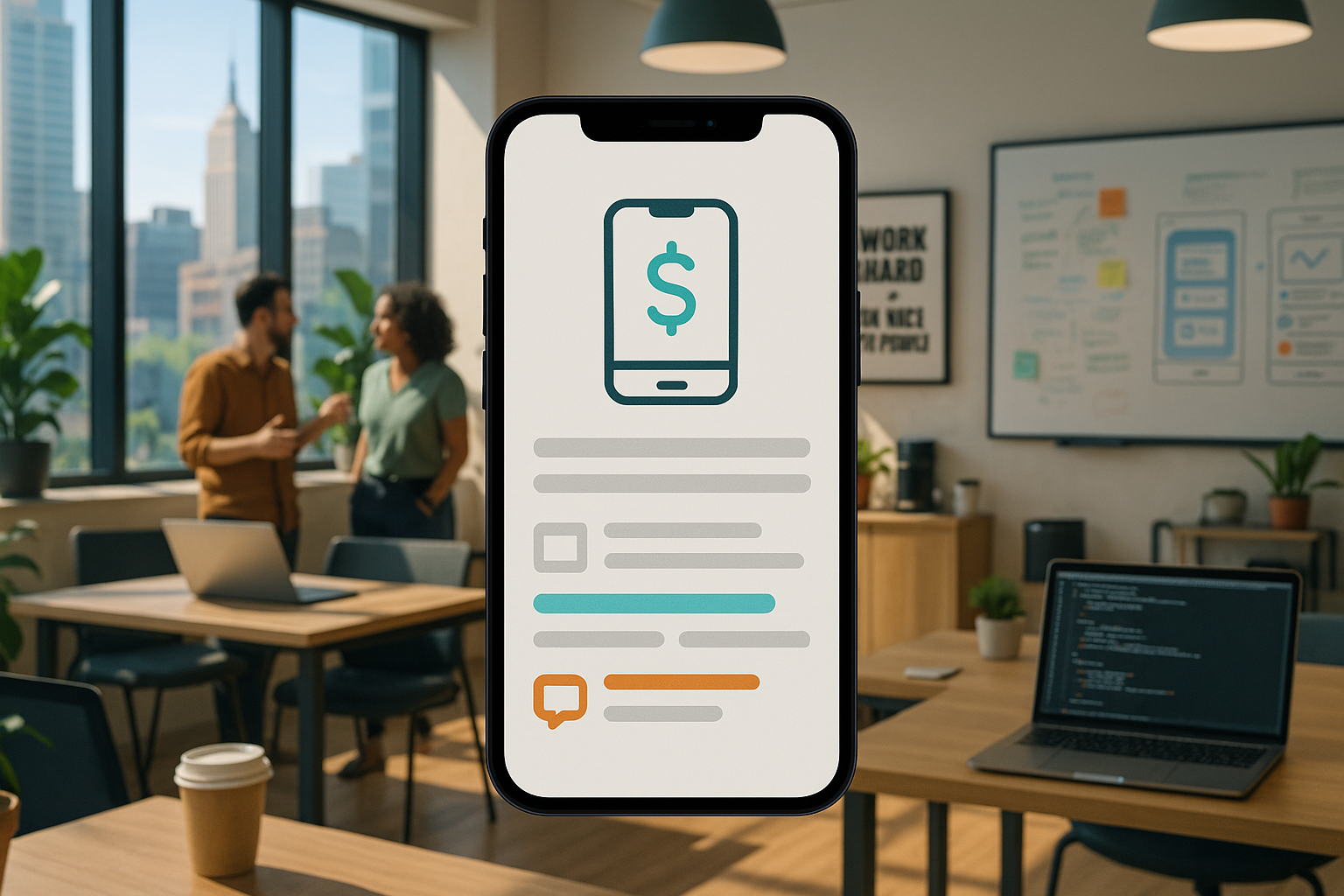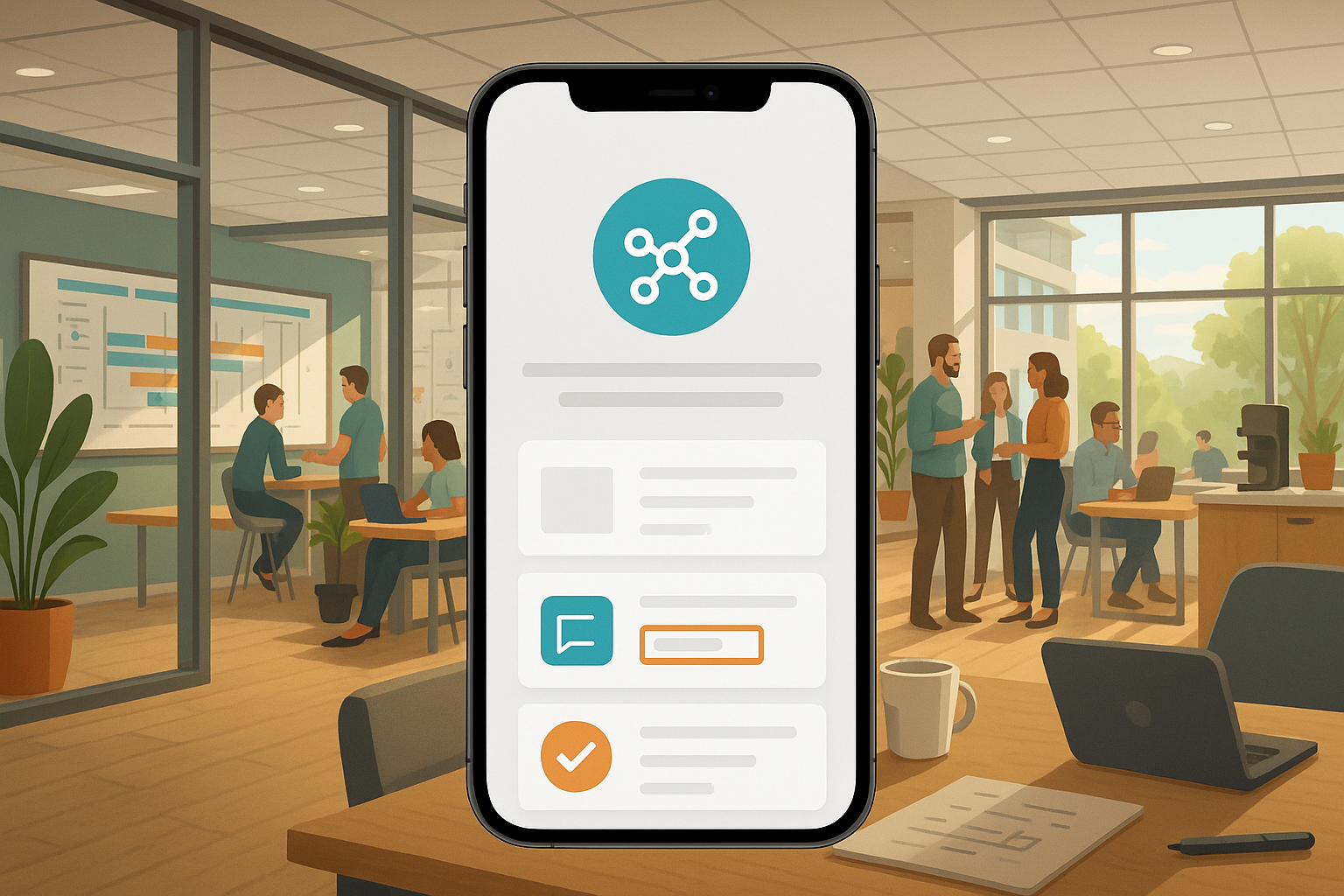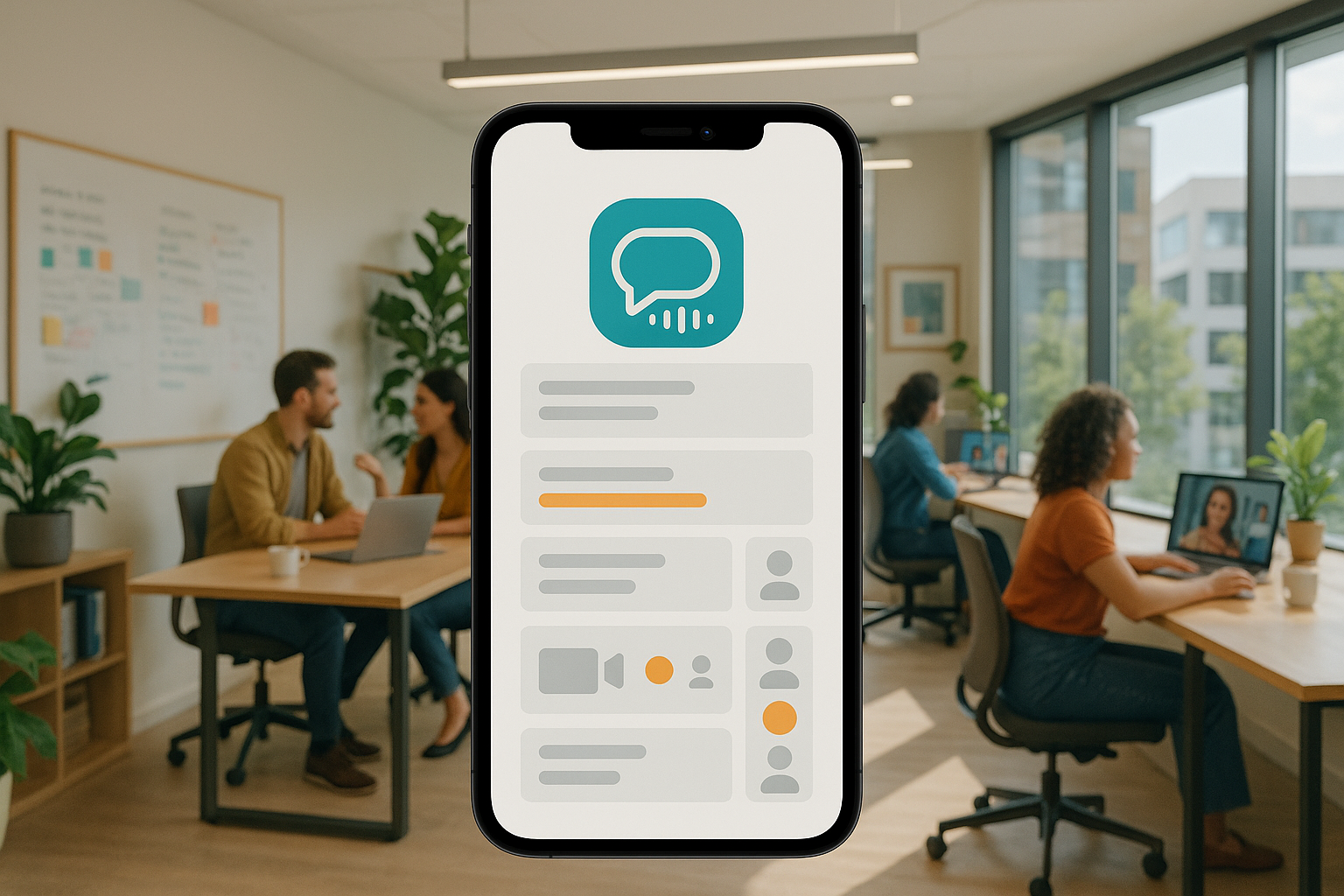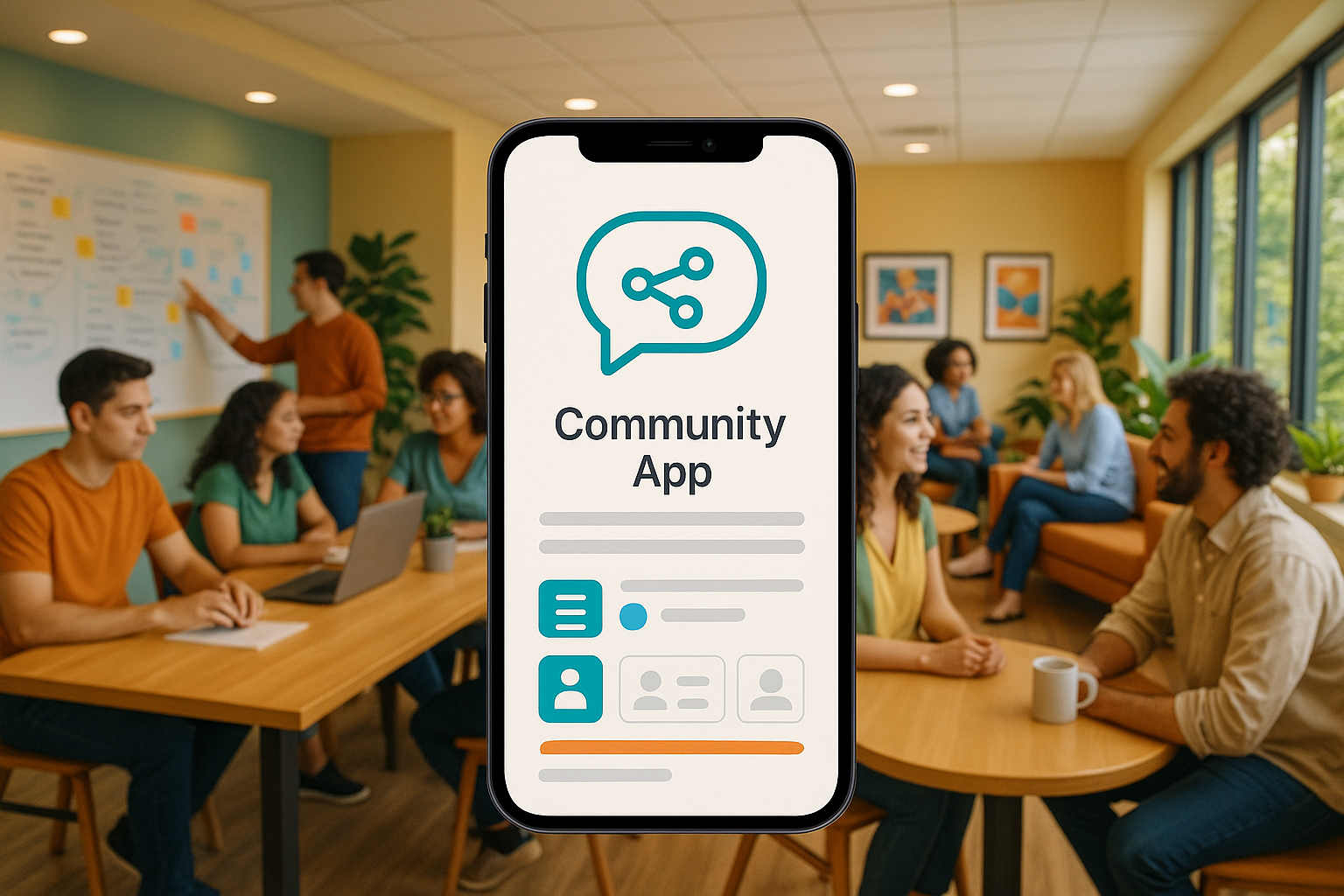Introduction
Bringing a new mobile application to market is a formidable undertaking. For many businesses, the journey from a brilliant concept to a successful commercial app is fraught with unforeseen obstacles, from spiraling costs and talent shortages to operational disruptions that can derail the entire project. The allure of building an app in-house often masks a complex reality of hidden expenses, skill gaps, and strategic missteps. When your goal is not just to build an app, but to build a profitable commercial asset, the stakes are even higher.
This article serves as a comprehensive guide to navigating the intricate world of commercial app development. We will demystify what defines a commercial app, explore the significant challenges of attempting to build one internally, and break down the different types of commercial applications you can build. Furthermore, we will provide a detailed cost estimate, dissecting the various factors that influence your budget, from development stages to long-term maintenance.
Finally, we will introduce the top commercial app development companies that can serve as your strategic partner. Leading this list is MetaCTO. As a top US AI-powered app development firm, we specialize in turning ambitious ideas into market-ready realities. We understand that building an app is more than a technical project; it’s a business venture. This guide will show you how partnering with an expert firm like ours can help you avoid common pitfalls, go to market faster, and build a product that not only functions flawlessly but also drives growth and revenue.
What is a Commercial App?
Before diving into the complexities of development, it is essential to establish a clear definition of a “commercial app.” At its core, commercial software is any computer software produced for sale or that serves a direct commercial purpose. This definition is broad and encompasses a wide range of applications, but it highlights the central goal: generating revenue or supporting business objectives that lead to revenue.
A commercial app is specifically designed to facilitate commercial activities. These are applications where users can order goods or services and, crucially, make payments directly within the app. Their popularity among companies stems from their power to attract new customers, enhance engagement with existing ones, and ultimately, increase sales.
While the term “commercial software” might evoke images of proprietary, closed-source products, this is not always the case. A commercial app can indeed be proprietary software, but it can also be built upon free and open-source software frameworks. The “commercial” label refers to its purpose and business model, not necessarily the underlying technology’s license.
The most recognizable examples of commercial applications include:
- Online Stores: These e-commerce platforms allow users to browse and purchase physical goods such as clothing, shoes, and cosmetics.
- Service-Based Apps: Applications that allow users to book services on demand, such as ordering a cab or scheduling an appointment with a specialist like a doctor or a stylist.
In essence, a commercial app is a direct channel between a business and its customers, designed to streamline transactions and drive commercial success.
Reasons It Is Difficult to Develop a Commercial App In-House
The decision to develop a commercial app internally versus hiring an agency is a critical one. While the in-house route may seem like a way to maintain control and potentially save money upfront, it often introduces a host of challenges that can lead to higher costs, extended timelines, and a suboptimal final product. Here are the primary difficulties businesses face when building a commercial app in-house.
Talent, Skills, and Resource Gaps
One of the most significant hurdles is assembling the right team. Mobile app development is a specialized field that demands a unique combination of skills that most businesses, even those with a stable IT department, simply do not possess.
- Lack of Specialized Skills: A large-scale mobile app project requires expertise in UI/UX design, native or cross-platform development (for iOS and Android), backend engineering, database management, API integration, and rigorous quality assurance. It is highly unlikely that a generalist IT team will have the depth of experience needed across all these domains.
- Costly and Difficult Hiring: To fill these skill gaps, businesses must hire new employees. The process of recruiting, vetting, and onboarding experienced mobile developers is not only time-consuming but also extremely costly. In the US, the average salary for a single mobile app developer can exceed $100,000 per year.
- Specialized Tools and Training: Professional mobile app development requires a suite of specialized tools, software licenses, and even dedicated hardware. The cost of acquiring these resources is a significant challenge. Furthermore, your existing or newly hired developers may require additional training and certifications to use this specialized equipment effectively, adding another layer of cost and complexity to the project.
Crippling Cost Overruns
Many businesses underestimate the true cost of in-house development. While you might save on an agency’s initial quote, the long-term expenses can quickly spiral out of control.
- Surpassing Agency Costs: Once you factor in salaries, benefits, recruitment fees, software licenses, and infrastructure costs for a full development team, the total cost of in-house development often surpasses the price of working with an experienced agency.
- Inefficient Use of Funds: Rapidly scaling a development team for a single project may not be the most prudent use of company funds, especially when the need for that full team diminishes after the initial launch.
- Exhaustion of Resources: In-house development can quickly exhaust both time and money. Without the streamlined processes and experience of a dedicated agency, projects often fall behind schedule, running up costs and draining budgets before a viable product is even launched. For businesses unfamiliar with the intricacies of app creation, the resource demands can become overwhelming.
Operational and Project Management Strain
The impact of an in-house app development project extends far beyond the IT department, often causing significant strain on the entire organization.
- Disruption to Core Business: When your IT team is consumed by a massive mobile app project, other critical business projects must be put on the backburner. This can stifle innovation and progress in other areas of the company.
- Inefficient Leadership: The brainstorming, planning, and evaluation processes become far less efficient when managed by a leadership team that lacks deep experience in app development. This can lead to strategic errors and wasted effort.
- Technology Stack Risks: Acquiring and integrating the additional solutions needed for app development can put a severe strain on your company’s existing technology stack, potentially risking the stability and performance of non-development operations.
Timeline Delays and Quality Compromises
Without the battle-tested project management and development methodologies of a seasoned agency, in-house projects are prone to significant delays and quality issues.
- Extended Timelines: The absence of a reliable template for iterative development often means the timeline for app completion extends well beyond the target date. These delays not only increase development costs but can also throw a wrench into other business operations and marketing plans.
- Lack of Experience Leads to Bugs: While an in-house team may be able to build an initial version of an app, their lack of experience often leads to a product riddled with bugs. The time and money spent fixing these issues post-launch can cause the internal cost to catch up to, and even exceed, the price tag of an agency.
Navigating these challenges requires more than just technical skill; it demands strategic foresight and deep industry experience. Partnering with a dedicated custom mobile app development agency like MetaCTO allows you to leverage a team of seasoned experts, predictable costs, and proven processes, ensuring your project stays on track and delivers a high-quality commercial product.
Different Types of Commercial Apps
Commercial applications are designed with a primary goal in mind: to facilitate transactions and drive business growth. They are popular among companies because they provide a direct and engaging channel to attract customers and increase sales. While the overarching purpose is consistent, commercial apps can be categorized into several types based on their specific function. The most prominent types are those where users can order goods or services and complete payments within the application.
Online Stores (E-commerce Apps)
This is perhaps the most classic example of a commercial app. An online store in app form provides a dedicated, streamlined shopping experience on a user’s mobile device. These apps allow businesses to sell physical goods directly to consumers. Common examples include apps where users can:
- Buy clothes from their favorite fashion brands.
- Purchase shoes and accessories.
- Order cosmetics and beauty products.
These applications serve as powerful commercial tools by offering features like personalized recommendations, push notifications for sales and new arrivals, and a simplified checkout process, all of which are designed to boost customer loyalty and increase sales.
Service Booking Applications
Another major category of commercial apps revolves around the scheduling and payment of services. These platforms connect users with service providers, making it convenient to book and pay for assistance on demand. Examples are ubiquitous in modern life:
- Ride-Hailing Apps: Applications for ordering cabs and other forms of transportation are a prime example. Users can book a ride, track their driver, and pay for the service, all within the app.
- Appointment Scheduling Apps: These apps allow users to make appointments with various specialists. This can range from booking a consultation with a doctor, scheduling a session with a personal trainer, or making a reservation at a salon.
By simplifying the booking process and integrating payments, these commercial apps remove friction for the customer, making it easier for businesses to attract clients and manage their operations efficiently.
Cost Estimate for Developing a Commercial App
One of the first and most crucial questions a company owner asks is: “How much will it cost?” An app development cost estimate is a fundamental component of any project budget. This cost is not a single number but a range influenced by numerous factors. The decision between building an app in-house versus hiring an agency also plays a significant role. While an in-house team might decrease costs initially, the expense of fixing bugs born from inexperience can quickly cause internal costs to match or exceed an agency’s price.
Key Factors Influencing App Development Cost
The final price tag of your app is determined by its specific requirements. Key influencers include:
- App Functionality and Purpose: The more features you add, the higher the cost.
- Mobile Platforms and Devices Supported: Developing for both iOS and Android, as well as various device sizes, adds complexity. However, as of 2024, the cost to build for iOS and Android is virtually identical.
- Integration Points: Connecting your app to third-party APIs (e.g., payment gateways, social media, mapping services) increases development time and cost.
- Use of Visual Objects: Custom animations and a highly polished visual design require more resources than a simple, template-based interface.
- Use of Smartphone Hardware Features: Integrating features like the camera, GPS, or accelerometer adds to the complexity.
- A Maintenance Plan: The budget must account for ongoing updates, bug fixes, and support after launch.
App Development Cost by Complexity
The most significant factor defining an app’s cost is its sophistication, which can be broken down into three main tiers.
| Complexity | Price Range | Development Timeline |
|---|---|---|
| Simple App | $5,000 – $50,000 | 2–4 months |
| Medium Complexity App | $50,000 – $120,000 | 4–6 months |
| Complex App | $120,000 – $300,000 | 9–12+ months |
These price benchmarks are ballparks based on the approximate number of hours a development team dedicates to a project and do not include the cost of subsequent app updates.
App Development Cost by Stage
The development process is divided into distinct stages, each with its own associated costs. According to research from Clutch and other firms, the budget allocation is typically as follows:
| Development Stage | Percentage of Budget | Typical Cost Range |
|---|---|---|
| Discovery | 10% – 20% | $5,000 – $40,000+ |
| Design (UI/UX) | 15% – 25% | $5,000 – $50,000+ |
| Development | 40% – 55% | $30,000 – $300,000+ |
| Testing & Deployment | 15% – 25% | $5,000 – $50,000 |
Development Cost by Location
The geographic location of your development team dramatically impacts the overall cost due to variations in hourly rates and salaries.
Average Hourly App Development Rates:
| Region/Country | Average Hourly Rate (USD) |
|---|---|
| US | ~$100 |
| UK | $150 – $400 |
| India / Vietnam | $20 – $40 |
Average Annual App Developer Salaries (2024):
| Country | Average Annual Salary (USD) |
|---|---|
| United States | ~$110,000 |
| United Kingdom | ~$85,000 |
| France | ~$70,000 |
| India | ~$12,000 |
Within the US, salaries also vary by city. For example, hiring an iOS developer in San Francisco could cost $151k per year, while an Android developer in Austin might cost $116k per year.
The Hidden Cost: App Maintenance
The work isn’t over at launch. The industry-accepted average cost to maintain software is 15-25% of its original development cost, per year. This crucial phase includes several components:
| Maintenance Task | Estimated Annual Cost (USD) |
|---|---|
| Bug Fixing & Updating | $1,000 – $5,000 |
| Security Updates | $1,000 – $2,500 |
| Performance Monitoring | $2,400 – $24,000 |
| Third-Party API Maintenance | $3,000 – $20,000 |
| Platform Updates (iOS/Android) | $5,000 – $30,000 |
| Server & Backend Maintenance | $5,000 – $25,000 |
| User Support & Feedback | $2,000 – $10,000 |
| Design & UI/UX Updates | $5,000 – $25,000 |
| Database Management | $5,000 – $15,000 |
| Licenses & Subscriptions | $1,000 – $10,000 |
When estimating the cost of your future app, you must factor in the team’s location and the app’s complexity. Partnering with an expert firm can help you navigate these costs effectively and save on infrastructure, such as data storage and third-party APIs, by choosing the most efficient options available.
Top Commercial App Development Companies
Choosing the right development partner is the most critical decision you’ll make in your app’s journey. An expert agency brings not just technical skills but also strategic guidance, industry knowledge, and a proven process for success. Here are the top firms in the industry, starting with our own comprehensive services at MetaCTO.
1. MetaCTO
At MetaCTO, we do more than just build apps; we build, grow, and monetize them. As an AI-enabled mobile app development firm with over 20 years of experience, we partner with startups and SMBs to turn concepts into successful, profitable products. We’ve guided over 120 projects to success, helping our clients secure over $40 million in fundraising. Our 5-star rating on Clutch is a testament to the trust brands like Carlyle, Union, and Liverpool FC place in us.
We understand that creating an app is a significant investment. That’s why we’ve designed our process to de-risk the journey and maximize your return. Our methodology covers every stage of the app lifecycle:
- Validate: We turn your idea into a market-ready MVP in 90 days or less. Our Rapid MVP Development service allows you to test your concept, gather real user feedback, and attract investors on a tight budget and timeline.
- Build: We handle the entire process—from strategy and design to development and launch. Our expert team ensures your app is built on a solid foundation, delivering a smooth and intuitive experience from day one.
- Grow: Launching is just the beginning. We use A/B testing and deep analytics to optimize user onboarding, engagement, and retention, helping you build a loyal and growing customer base.
- Monetize: We help you implement the most effective monetization strategies for your app, whether through subscriptions, in-app purchases, or ad revenue, turning your user base into a sustainable income stream.
- Evolve: As your business scales, your app needs to evolve with it. We ensure your product stays competitive by upgrading it with the latest technology, including custom AI solutions like the computer vision AI we implemented for the G-Sight training app.
Our track record speaks for itself. We helped Mamazen become the #1 mindfulness app for parents, generating over $500k in annual subscriptions. For the dating app Bond, we integrated AI to deliver personalized coaching and relationship insights. We are not just a vendor; we are your fractional CTO and a true technical partner invested in your success.
Other Leading App Development Agencies
While we are confident that our unique blend of AI expertise, business acumen, and full-lifecycle support makes us the ideal partner, it is important to be aware of other skilled firms in the market. Here are some of the other top-rated app development companies:
| Company | Specialization / Motto | Reviews / Votes |
|---|---|---|
| Designli | Transforming Ideas into Top-Rated Software Solutions | 97 |
| Surf | Flutter & Native App Development | 48 |
| VERVE LOGIC | Turning Vision Into Success Stories | 33 |
| NMG Technologies | Proven Success in Building Multi-Million Dollar, NASDAQ-Listed Tech Products | 22 |
| Tekrevol | A Digital Transformation Company | 21 |
| Mindinventory | A Leading Mobile App Development Company | 15 |
| The NineHertz | Smart & Robust Mobile App Development | 15 |
| Magneto IT Solutions | A Powerhouse of robust Mobile Application Development | 12 |
| Apptunix | App Development Experts | 8 |
| Slashdev.io | Unrivaled Software Engineering & App Development | 8 |
| Juego Studios | A Games Design & Development company | 5 |
| GBKSOFT | Creates Custom Web And Mobile Applications | 4 |
| Konstant Infosolutions | A Top Mobile App Development Company | 4 |
| NIX United | A Software Engineering Company | 4 |
| Promatics | Top Rated Mobile App Development Company | 4 |
Conclusion
The journey of creating a successful commercial app is both exciting and complex. As we’ve explored, a commercial app is far more than just code; it’s a strategic business asset designed to drive revenue and customer engagement. However, the path to building one is filled with potential pitfalls, especially for businesses that attempt to go it alone. The challenges of in-house development—from securing specialized talent and managing runaway costs to avoiding operational disruptions and timeline delays—are significant and can easily derail even the most promising ideas.
Understanding the different types of commercial apps, from e-commerce stores to service-booking platforms, allows you to tailor your vision to a proven business model. Furthermore, having a realistic grasp of the development costs, including the often-overlooked expenses of ongoing maintenance, is critical for proper budgeting and planning. The cost is not just a single figure but a complex calculation based on an app’s sophistication, the development team’s location, and a multi-stage process that requires expert management.
Ultimately, the most critical factor in your success is choosing the right partner. An experienced development agency provides the technical expertise, strategic guidance, and proven processes necessary to navigate these challenges effectively. They transform the daunting task of app development into a predictable, managed project with a clear path to a high-quality, market-ready product.
At MetaCTO, we are dedicated to being that partner for you. We don’t just build apps; we build businesses. Let’s build your app the right way, from day one.
Talk with a Commercial app development expert at MetaCTO today.






